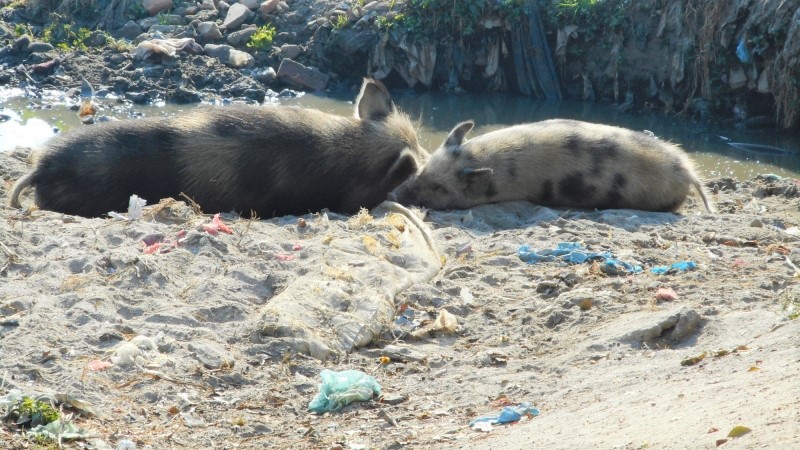Traveling and discovering other countries and cultures is great fun. But travel does have a negative impact on the environment. Firstly, the amount of CO2-emissions depends on your means of transport. Unless you walk everywhere, your movement is going to have some type of negative consequence for the environment. In addition, tourism can have negative consequences for the local environment in the countries we visit. Of course, this also applies if you are on holiday in your own country. Sustainable travel is tourism that watches out for the planet, and very essential if we want to keep enjoying everything this beautiful planet has to offer.
If you live vegan, you are often more aware of taking care of your surroundings more so if you are also a minimalist (like me). It may even be the main reason for choosing a vegan lifestyle! Regardless, there are many reasons to consider the well-being of people and the environment on your holiday. We offer you some ways, you can easily implement yourself, for sustainable travel improvements.
Buying Souvenirs
It's not the first thing that comes to mind when you think about sustainable travel, but you can support the local community by buying souvenirs. Make sure to buy souvenirs that are handcrafted locally and, if possible, buy them directly from the artisan. Don't buy your souvenirs from a large retailer or at the airport. These items are often mass produced abroad. Also refrain from buying things like t-shirts which are mass produced in low-cost countries and will not support the local community.
Tourist attractions
There are many places to visit during your travels. Chances are you will come across a lot of tourist attractions that are not vegan or otherwise ethical. Skip trips that involve using animals or put them in cages for tourists to watch. Choose to visit ethical sanctuaries instead. Also, try to make sure guides get paid living wages. Do some research beforehand so you know what to look for and how to tip.
Waste reduction
A key aspect of sustainable travel is the waste that is produced while traveling. Plastic waste is a huge environmental problem. Don't use any plastic items that you don't really need, such as plastic plates and forks or disposable plastic bags from the supermarket. Instead, bring your own reusable bags and utensils. It is not always possible to avoid using plastic water bottles in some countries. However, you can usually buy a larger container to refill your bottle with. If you are using plastic bottles, make sure to put them in a recycling bin, if possible, or a regular waste bin so they can be collected. Take your waste with you until you find a way to dispose of it properly. Remember: take only pictures and leave only footprints.
Interacting with local people
Tourist destinations are not amusement parks, they are places where people live and try to make a living and often try to survive. Sustainable travel also means supporting the locals by interacting with them, talking to them about what they are doing, and how you can possibly support them. Sometimes tourism can have a negative effect on the local community. It is good to learn from the local people and their culture.
Taking photos of people
Not everyone is keen on having their photo taken. In some countries and religions, it might even be forbidden to capture some images. Always ask if people mind being photographed. Some people might ask for a donation. We recommend not to encourage this. Don't take photos in secret.
Sustainable travel: modes of transport
To reduce carbon emissions during, you should try to avoid using airplanes. In most countries it is possible to travel by public transport such as train or bus. Or share a taxi with others. Modern vehicles will typically have lower emissions, and air-conditioned vehicles use more gas/petrol than. Public transportation is not only better for the environment, but also more fun!
Offsetting Carbon Emission
If you do choose to travel to a faraway destination by airplane, you can choose to offset the CO2 emissions of your trip. There are various organizations, such as Greenseat, that give you the opportunity to calculate the CO2-emissions of your trip. This way you can sponsor sustainable projects with a financial contribution that gives households in developing countries access to sustainable energy. This reduces CO2 in the atmosphere and improves the living conditions of local families.
Certification for sustainable travel
If you are traveling with a tour operator, ensure that they pay sufficient attention to sustainable travel. For example, whether their tour guides have successfully completed the training "Leading the way" of The Travel Foundation. This training teaches how to integrate sustainable practices into travel, as well as the principles of sustainable travel guidance and communication with customers and the local community.







